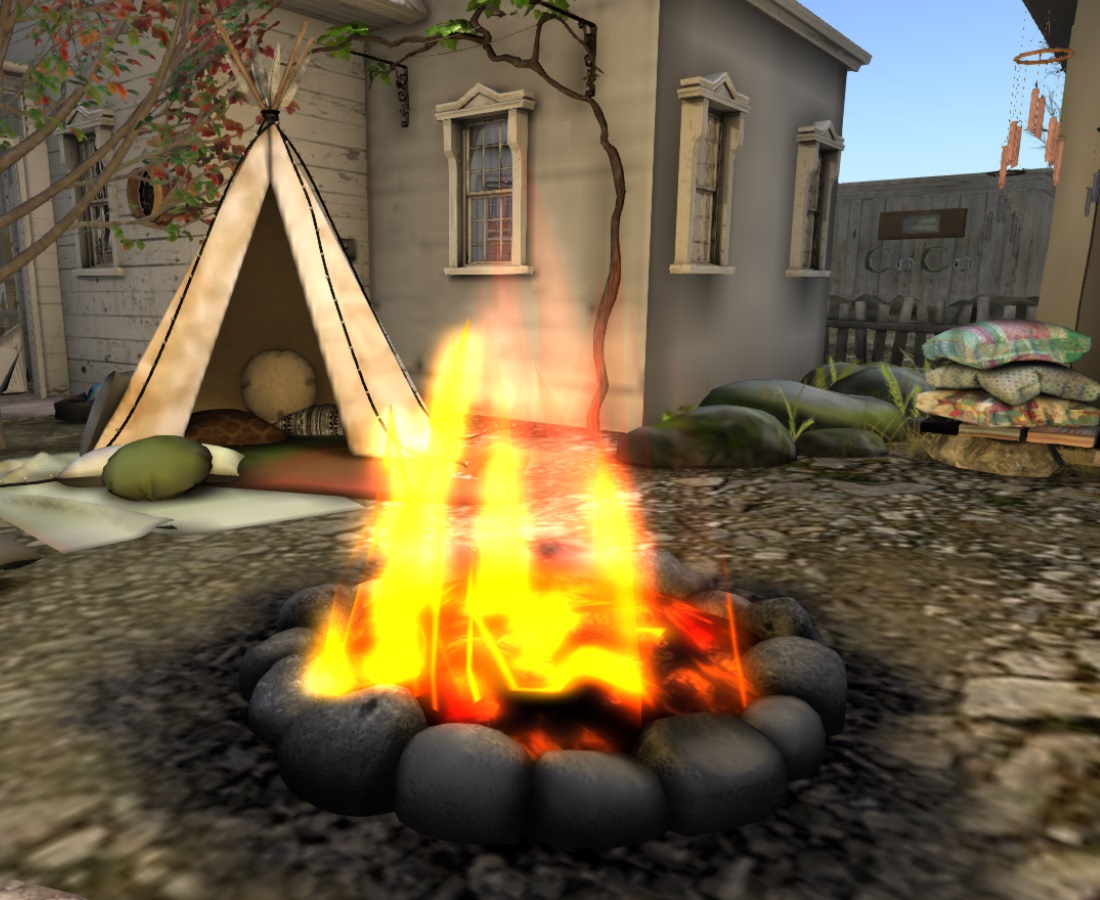On the afternoon of Tuesday, March 3rd, drums beating within the Atapaka Reservation in Batterie give signal of the ceremony within. Every year, in March and April, the tribe holds its fertility celebration. As they dance and feast, they invoke the gods to shine favor upon them for a gain in birth rates and territory.
The ceremony, originating from the time before European settlers, has changed significantly over the last hundred years. Up until four decades ago, animal sacrifice was a key component to the ritual. As far as a century back, tales tell of virgin sacrifices as well.
The tribe extended an invitation to the locals of Hathian to join them in the ceremony. Though the showing of the city’s residents was modest, it was not without some high profile people. Valmont Marseille, director of Venus Productions; Jayda Ferrentino, editor-in-chief of H’Zine; Paige Davenport, candidate for city council; and Jack, proprietor of Vudu Spice Shop, Professor and Dean of Columtreal University are among the most notable attendants.
Around a blazing bonfire, patrons roasted meat, drank domestic alcohol and herbal teas, and passed around traditional pipes. Volunteers offered themselves to be painted by shaman Mahkah in promotion of good health, virility, and an open mind. Mahkah’s personal touch went upon many of the available men, who stayed true to the spirit of the paint’s properties, by some very apparent arousal throughout the later evening.
What follows is a dance that can only be described as an erotic and sensual display of amorous behavior. All eyes fixate upon bodies that writhe and gyrate to the beating of drums. Clothing is shed and tossed aside for freedom and mobility. Voices rise and fall as passion ebbs and peaks. Upon the last beat of music, dancers crumble exhaustedly upon dry dirt beaten beneath bare feet.
As events wind down upon nightfall, the Atapaka unwillingly consent to interviews. Many are outright opposed to questions and those that did so speak hesitantly. For a tribe that is open for business from outsiders, answers come few and far between.
Shaman Mahkah is among the most open members of the tribe and was able to provide some insight as to the Atapaka’s stand on government intervention.
GW: How do you feel about government sanctions that prohibit liberties of Native American culture? Have they in any way impact the ceremony today?
M: We have absolutely no care for what a white man in a suit tells us what we can or cannot do. We have spiritual immunity from persecution by state laws when on our own land. No, they did not limit our ceremony today in any way; but if they tried, we would not allow it. Enough has been stolen from us. I think you’ll find all native communities in agreement.
GW: On a more local level, have the traditions of your people been stifled by authorities? How might the Atakapa Reservation handle a situation like that?
M: Not really, we keep to ourselves most of the time. But we are ever on watch, if it happened. We would gather support from the community and stage a protest against further persecution. All of this was once our land, we are not afraid to be outspoken when the need arises.
GW: The political climate of Hathian is hot in debate right now over cultural mores. Do you feel as if any of the government council candidates will protect this reservation and its people?
M: I hope so. We’ll address that with whoever winds up in office.
Big Bear, one of the tribe’s ardent protectors, and Kiya, produce stand vendor, share their interactions and problems that arise from the Hathian neigbors.
BB: They stare. Not as much as they used to. But they do sometimes, stare and whisper or even throw things or yell mean things. They steal. They take our picture, we do not like it.
K: It has gotten better since we opened the produce stand and started communicating with them while selling food, jewelry, and remedies. Some of them know us now.
BB: We keep to ourselves.
Nikoli, one of the senior medicine men, gave comment in regards to the growing interest of Native American culture from outsiders.
N: Yes. They come in to buy and ask many questions. They look at our maps and books. Mahkah the shaman, she is going to teach a seminar at the university. People want to know things, they want to understand us. It was not always so, they used to be more afraid. They have gotten to know us better, now they want to know about our culture and our people.
Chief Koa, who initially refused to speak, gave a statement as to the current state of the tribe and its view of the mainstream world.
K: All we are and have been for centuries is reduced to this tiny parcel of land. We are all family. The Atakapa will soon cease to be and all of our histories and traditions will die with us. When the red man dies away from the land, the land forgets a part of its history. Soon there will be nothing left. You white people, you worry for your computers, your families, your politics. You forget how you came to be here. You want advice? Remember yourselves. Remember your history. You are the new natives. Our fate will someday be yours.
Paige Davenport, the only local government candidate in attendance, gives vocal support to the tribe in the event of potential conflict between authorities and the Atapaka.
PD: I am a supporter of the Atakapa tribe’s complete sovereignty over their land. I will defend their borders much like they’ve proudly defended the larger nation they’re a part of.
Though the Atapaka have suffered much throughout history, they are well prepared to defend what remains of their land, people, and culture. Question as to how well Hathian will embrace its native residents meets with hesitant optimism, though the long-term outlook remains bleak. One thing is certain however, the tribe still prays for lasting fruition.








